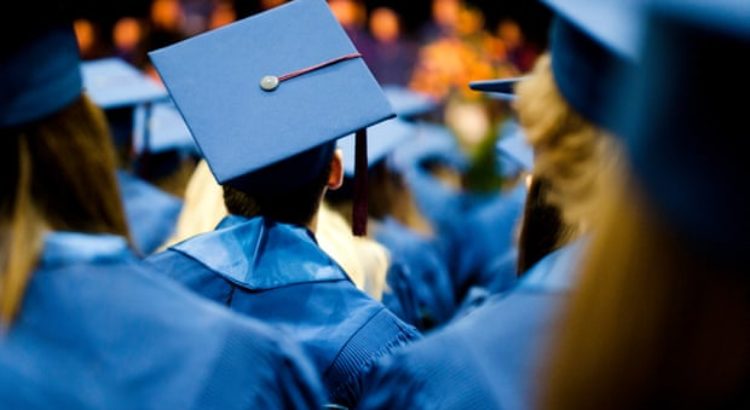By Paul Karp
Analysis of graduate earnings in Australia shows benefit of a university degree is diminishing
Policies to boost female participation have helped narrow the gender gap in career earnings but pushing students to study science has resulted in smaller pay packets.
Those are the results of a Grattan Institute analysis of graduate earnings and employment outcomes, released on Monday, which found the benefit of having a university degree is actually shrinking.
Female university graduates still earn about $14,000 a year more than women whose highest qualification is year 12, while for men the premium is about $12,500. But the report found that the average earnings premium of an early career graduate aged 25 to 34 had shrunk by 8% for women from 2006 to 2016 and by 6% for men.
The report by Grattan Institute higher education director, Andrew Norton, and fellow Ittima Cherastidtham found that Australia’s immigration – skewed towards skilled migrants – and the uncapping of student places between 2009 and 2015 meant “many more people are chasing the jobs that graduates aspire to hold”.
“Growth in the number of professional jobs has not kept up with demand,” the report said. New professional jobs had “dropped significantly” after the global financial crisis in 2009 and at the end of the mining boom in 2013.
The chief executive of Universities Australia, Catriona Jackson, said there was still a “sizeable wage benefit” for graduates and the premium had only fallen slightly despite the significant expansion of access to higher education.
Male graduates saw their earnings fall by 3% from 2006 to 2016, owing to a decline in full-time work and professional or managerial jobs.
Female graduates saw their earnings rise 4% from 2006 to 2016, outstripped by a 10% increase in pay for women with year 12 as their highest qualification.
The increase in earnings was triggered by an increase in workforce participation by women with children, from less than 70% to more than 75%. The report credited additional paid parental leave and improved childcare subsidies since 2008.
The career earnings gap between the male and female median-earning graduate fell from 30% in 2006 to 27% in 2016. Women narrowed the gap by earning the equivalent of one and a half years’ of pay more across their careers.
“Progress is slow, but as successive cohorts of young graduates have careers that are less disrupted by motherhood, the gender earnings gap will continue to decline,” the report said.
For female graduates big increases in average annual earnings were recorded in nursing (+10%), education (8%), medicine (6%) and engineering (3%) – with pay increases in industries dominated by public sector employment leading the way.
Pay went backwards for female graduates in the humanities, science, information technology and law, all down 2%.
For male graduates, only those with education degrees saw a significant pay rise (+7%), while big declines were recorded in law and commerce (-7%), science (-6%) and information technology (-3%).
Engineering, law and medicine graduates remain the highest paid.
Both male and female science graduates face difficulties finding managerial/professional jobs. In 2016 more than 40% of science graduates were employed as labourers, in sales, administration and services or trades, which are less likely to use their qualification.
Only those with humanities qualifications have equivalently low rates of employment in managerial/professional jobs. Nursing, education and medicine all had rates of 90% or more employed in managerial/professional jobs.
The report said the rate of unemployment or under-employment four months after graduation grew from 15% before the global financial crisis in early 2008 to its highest-recorded level of 31% in 2014.
Evidence from previous economic downturns showed there “will be a long-lasting impact on the earnings prospects of early-career graduates”.
But it predicted that the “worst has passed” – because although “new graduates are still less likely to get a full-time job than a decade ago … their prospects are improving”.
Source of the article: https://www.theguardian.com/australia-news/2018/sep/16/gender-gap-narrows-but-push-towards-science-has-lowered-wages









 Users Today : 6
Users Today : 6 Total Users : 35460269
Total Users : 35460269 Views Today : 7
Views Today : 7 Total views : 3418975
Total views : 3418975